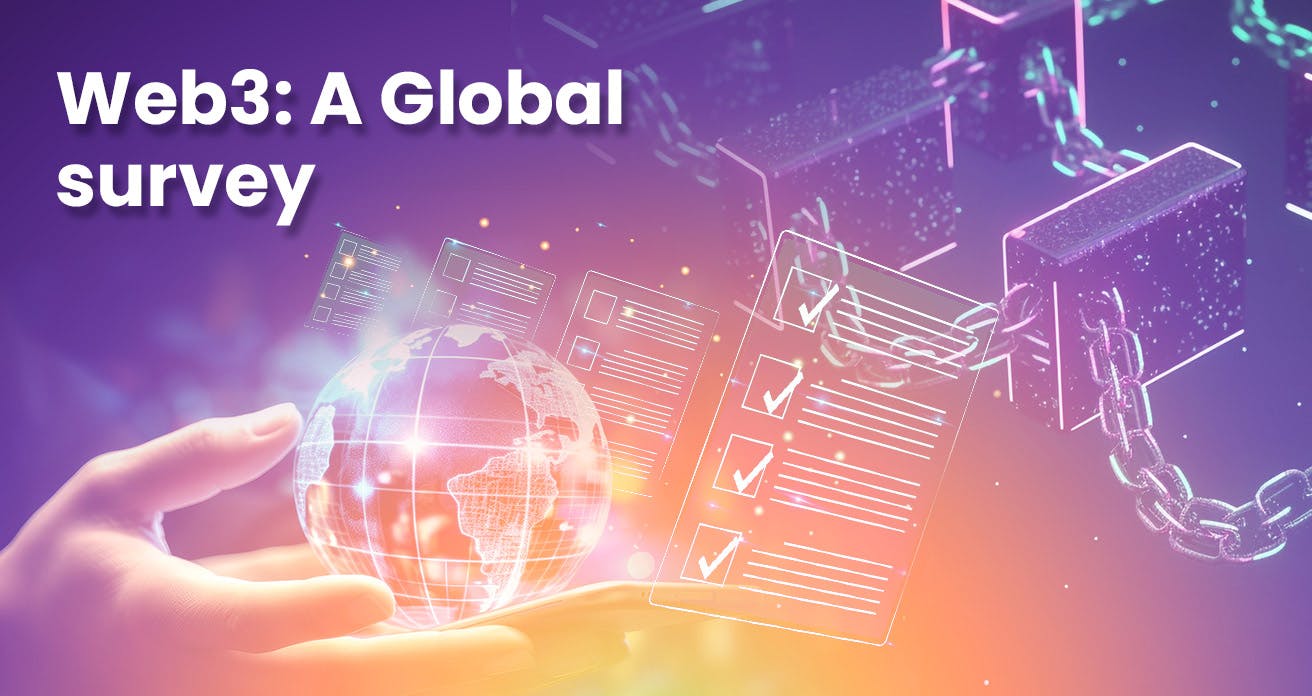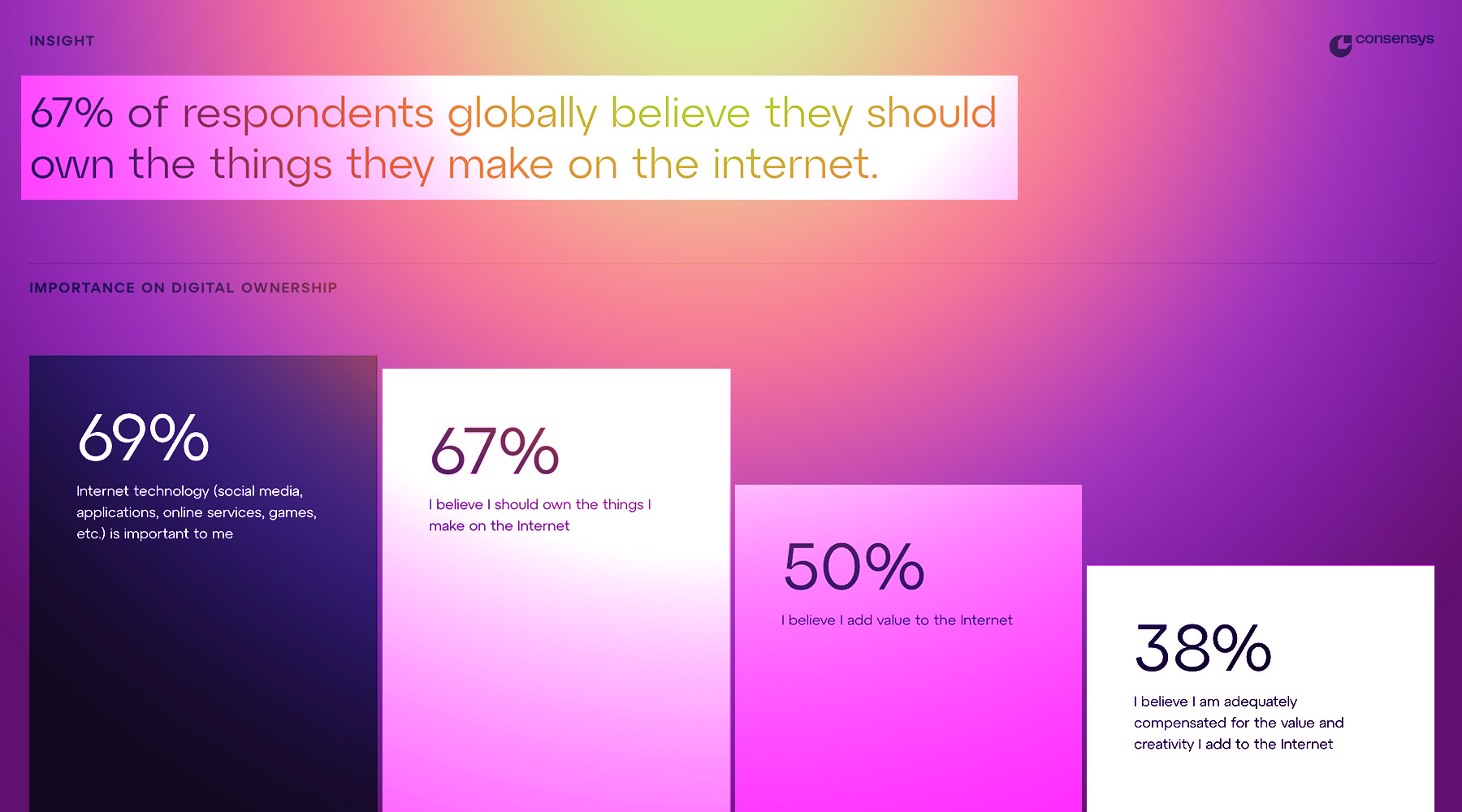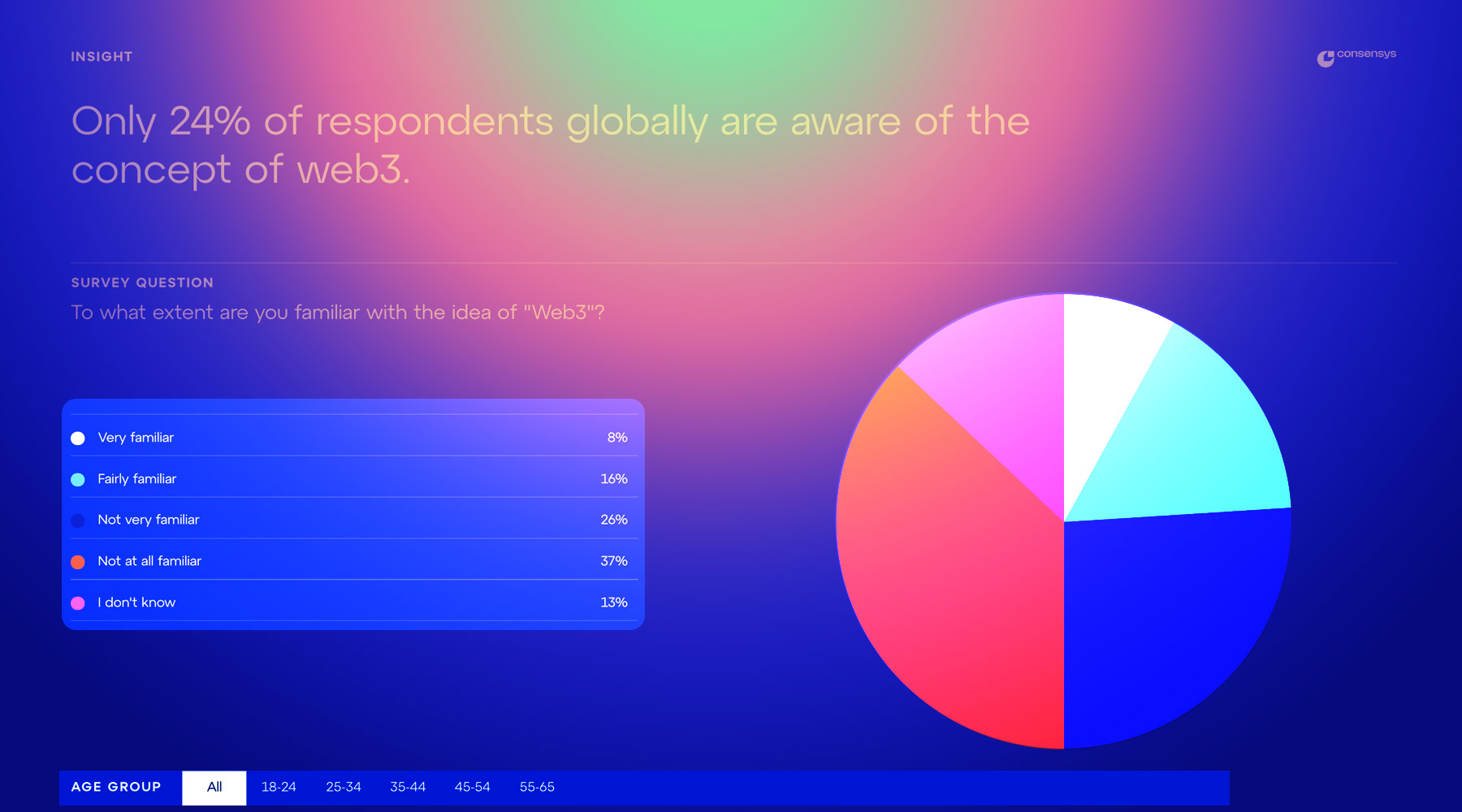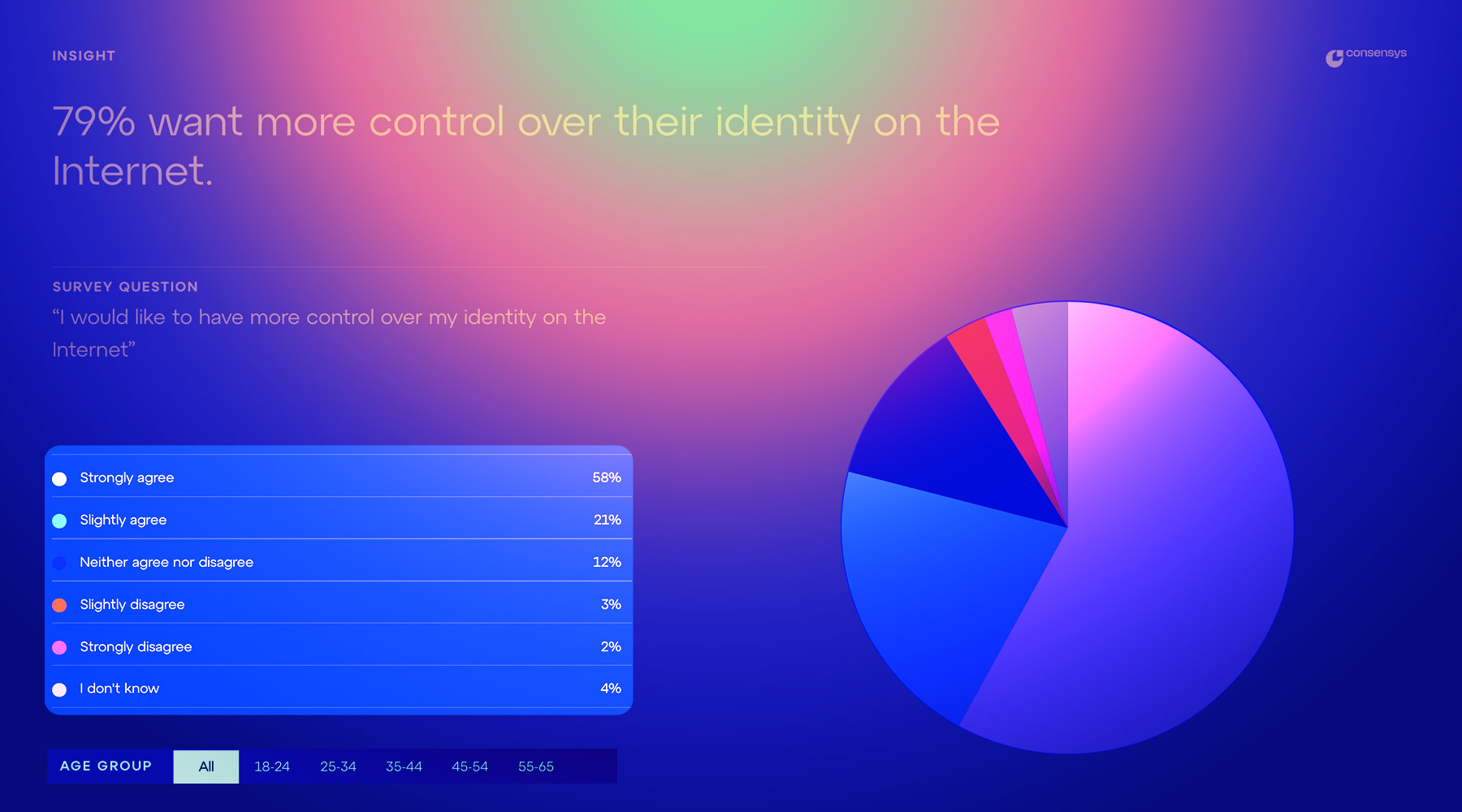Blog

Unveiling the Promise of Web3: A Global Survey
In collaboration with YouGov, Consensys conducted an extensive global survey across 15 countries, spanning continents. This comprehensive study delves into the world's perceptions regarding cryptocurrencies, NFTs, and blockchain while shedding light on the evolving global perception of the new internet paradigm. Join us as we explore key findings from this study, and what it means from our POV.
Unlocking Web3 Awareness and Desire for Ownership
The survey unveils a substantial awareness gap between cryptocurrencies and web3. Astonishingly, 92% of respondents worldwide reported being aware of cryptocurrencies, whereas only 8% claimed to be very familiar with web3. This disparity emphasizes the need to bridge the gap between the public's awareness of web3 and its potential to change digital ownership, privacy, and identity. Despite limited awareness, there's a resounding desire for ownership and data privacy. Half of the respondents believe that web3 concepts enhance the internet's value, with 67% asserting that individuals should own their digital creations online. Data privacy concerns are also widespread, with 83% prioritizing data privacy and 79% seeking more control over their online identities. These findings underscore the urgency of educating the public on how web3 can have a significant impact on their lives, which are increasingly lived online e. Additionally, it is possible that the terminology “web3” is simply more industry jargon than it is a concept that the everyday consumer can relate to. As we move towards mass adoption, as an industry, we need to consider the role of semantics and collectively use words that feel accessible and inclusive.  Source: consensys.io/insight-report/web3-and-crypto-global-survey-2023
Source: consensys.io/insight-report/web3-and-crypto-global-survey-2023
Regional Perspectives: Unveiling Attitude Variations
The survey uncovers intriguing regional differences in attitudes towards cryptocurrencies and Web3. European nations, Japan, and South Korea often exhibit skepticism towards cryptocurrencies, linking them to negative aspects like scams and money laundering. In contrast, Southeast Asian, South American, and African countries with less stable currencies, display more enthusiastic attitudes, viewing crypto and Web3 as alternatives to traditional financial systems and tools for global capital access. This reminds us of the equalizing effect that blockchain and decentralized finance could provide in the future, potentially reducing disparities between the Global South and the Global North.
From "Users" to "Builders": Embracing a Paradigm Shift
The results suggest an opportunity for a profound paradigm shift—from being passive internet "users" to becoming proactive "builders." By leveraging Web3 solutions to tackle challenges tied to ownership, identity, privacy, and monetization, individuals can transition from being mere consumers to active participants in shaping the digital landscape. Many respondents feel they contribute value online but are not adequately compensated for it. Adopting a "builders" mindset and harnessing Web3 products can empower people to take control of their online presence and experiences while building value that is reflected in the digital assets they hold.
The Rise of the Creator Economy: Empowering Global Creators
As we delve deeper into the transformative potential of Web3, it's essential to highlight the role of creators. Goldman Sachs Research anticipates a remarkable growth trajectory for creators worldwide, with an expected 10-20% compound annual growth rate over the next five years. This surge in creative minds signifies the profound shift towards an even more thriving creator economy.  Source: consensys.io/insight-report/web3-and-crypto-global-survey-2023
Source: consensys.io/insight-report/web3-and-crypto-global-survey-2023
From Passive Data Ownership to Active Participation
In the digital age, we are witnessing a transformative journey—one that transcends passive data ownership and embraces active participation. No longer content with relinquishing control of their data, individuals are now asserting, "I am an active participant in creating the internet, and my identity belongs to me, not some third party." This shift is further amplified by the conviction that creators deserve just compensation for their contributions. Web3, especially through NFTs, paves the way for this transition, enabling users to reclaim authority over their online presence and stake a rightful claim in the digital realm. This movement aligns seamlessly with our concept of User Generated Value, where individuals actively contribute to and benefit from the digital ecosystem they help shape. Source: consensys.io/insight-report/web3-and-crypto-global-survey-2023
Source: consensys.io/insight-report/web3-and-crypto-global-survey-2023
A Glimpse into the Web3 Era
In conclusion, this survey offers valuable insights into the evolving global perception of Web3. It underscores the importance of narrowing the gap between awareness and practical understanding of what real-world problems web3 technologies can solve. It also reveals insights into the pressing need for heightened privacy, control, and ownership in today's digital realm. Consumers are ready for this shift, especially the younger demographics. As we transition the mainstream into the Web3 era, the potential for users to reclaim authority over their online presence and embrace empowerment is a promising prospect.
As an industry, now is the time to make this technology accessible, clearly understood, and easy for everyday people to get on board. This is the only way to truly stress test the potential for the blockchain to ameliorate our lives, globally, and in the long run.
The full report and country-specific summaries can be downloaded from the Consensys website.

